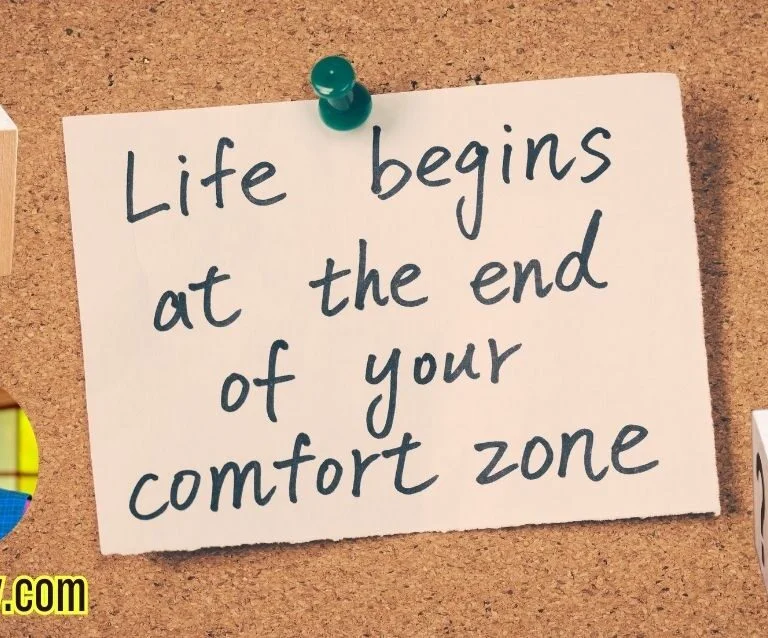Curiosity
Curiosity can be defined as a fundamental human trait characterized by a strong desire to learn, explore, and understand various aspects of the world. This intrinsic motivation pushes individuals to seek answers to questions, delve into unfamiliar subjects, and expand their horizons. From an early age, curiosity manifests itself in children through their relentless questioning and eagerness to investigate their surroundings. As people mature, this natural inclination transforms into a vital asset that contributes significantly to personal and professional development.
The relevance of curiosity in today’s fast-paced and ever-evolving society cannot be overstated. In both personal and work environments, curiosity fosters creativity and innovation. It encourages individuals to break away from traditional thought patterns and seek novel solutions to complex problems. Professionals who cultivate curiosity often find themselves better equipped to adapt to rapid changes and challenges, which are commonplace in various industries. This adaptability helps enhance overall performance, making curiosity a valuable skill in the workplace.
Moreover, curiosity promotes lifelong learning, which is increasingly important in the knowledge-based economy. Individuals who actively engage their curiosity are more likely to pursue educational opportunities, attend workshops, and seek experiences that broaden their understanding. This continual quest for knowledge not only enriches personal experiences but also enables individuals to stay relevant in their careers. By embracing curiosity, individuals develop a broader perspective on life, which can lead to greater wisdom and empathy.
As we delve deeper into the concept of curiosity throughout the rest of this article, we will explore its various dimensions and the profound impact it has on shaping our lives and experiences. Understanding curiosity as a life skill is essential; it goes beyond mere interest in the unknown and serves as a catalyst for growth and discovery.
The Benefits of Being Curious
Curiosity is often viewed as a simple desire to learn, yet it extends far beyond this basic definition, impacting various facets of life. One of the most notable benefits of fostering a curious mindset is the enhancement of creativity. When individuals are open to exploration and questioning the status quo, they can generate novel ideas and innovative solutions. This inquisitive attitude compels individuals to think outside the box, resulting in unique approaches to problem-solving and the fortification of their creative capacities.
In addition to fostering creativity, curiosity significantly improves problem-solving abilities. Those who embrace curiosity are more likely to tackle challenges head-on, as they are driven by a desire to uncover underlying issues and explore multiple perspectives. This analytical approach not only leads to more effective solutions but also cultivates resilience, as curious individuals are better equipped to navigate obstacles by applying adaptive strategies.
Moreover, curious individuals tend to make better decisions, both personally and professionally. By actively seeking knowledge and exploring various viewpoints, they gather a more comprehensive understanding of situations at hand. This quest for information can result in more informed choices, minimizing the likelihood of biases and assumptions overshadowing sound judgment.
Curiosity also contributes to the development of emotional intelligence, which is paramount in fostering social connections and interpersonal relationships. As curious individuals engage in deep questioning and are eager to learn about others, they create an environment where empathy and understanding flourish. This heightened emotional awareness can lead to richer interactions and more fulfilling connections.
In essence, embracing curiosity yields tangible and intangible benefits that enhance creativity, inspire innovation, improve problem-solving abilities, and lead to excellent decision-making. Cultivating a curious mindset not only enriches individual experiences but also strengthens relationships and fosters professional success.
Curiosity as a Catalyst for Lifelong Learning
Curiosity is often described as the innate desire to explore, learn, and comprehend the world around us. This powerful trait serves as a catalyst for lifelong learning, encouraging individuals to remain engaged in their educational journeys well into adulthood. Curious individuals are more likely to actively seek knowledge, pursue formal education, and engage in informal learning opportunities. The presence of curiosity in an individual can spark a passion for acquiring new skills and understanding diverse subjects, thereby enriching their personal and professional lives.
The role of curiosity in motivating individuals to pursue lifelong learning cannot be understated. Curious learners demonstrate greater initiative in seeking out educational resources, whether they are attending workshops, enrolling in online courses, or reading extensively. For instance, many successful entrepreneurs attribute their success to a strong sense of curiosity that inspired them to gain knowledge about their industries, market trends, and new technologies. This thirst for information not only enhances their expertise but also enables them to adapt swiftly to shifting market conditions.
Moreover, curiosity plays a significant role in helping individuals adapt to new environments and changing circumstances. In an ever-evolving world driven by technological advancements and globalization, the ability to learn and unlearn is crucial. Curious individuals tend to embrace change rather than resist it, viewing new challenges as opportunities for learning and growth. For example, professionals who approach new job roles with curiosity can quickly acquire necessary skills and knowledge, thus enhancing their employability and career prospects.
In essence, curiosity acts as a driving force behind lifelong learning by inspiring individuals to seek knowledge, remain adaptable, and cultivate a passion for continuous growth. With a commitment to nurturing curiosity, individuals can embark on enriching learning experiences that contribute to their overall wisdom and life satisfaction.
Overcoming Barriers to Curiosity
Curiosity is often stifled by various barriers that, if left unaddressed, can lead to a decline in one’s ability to explore and learn. One of the predominant barriers is the fear of failure. Individuals may avoid asking questions or seeking new experiences due to worries about negative outcomes or appearing uninformed. This fear can create a cycle of avoidance that limits opportunities for growth and learning. Recognizing this fear as a natural human response is the first step towards overcoming it, and individuals can practice reframing their perceptions of failure as valuable learning experiences.
Societal pressures also play a significant role in curbing curiosity. In a culture that often prioritizes conformity and adherence to established norms, the act of questioning can be viewed as disruptive. This environment may discourage open dialogue and the pursuit of unconventional ideas. To counteract this, fostering a growth mindset within both educational and professional settings can be beneficial. Encouraging individuals to view curiosity as a strength rather than a liability can lead to more innovative thinking and solutions.
Complacency is another barrier that can hinder curiosity. When individuals become comfortable in their routines, they may resist exploring new ideas or perspectives. Breaking out of complacency involves actively seeking out new experiences and challenging oneself to step outside familiar boundaries. Curiosity thrives in environments that encourage exploration without judgment. Thus, creating a safe space for inquiry is essential. This can be achieved by promoting open-mindedness, where questioning and exploring diverse points of view are welcomed and valued.
By addressing these barriers, individuals can cultivate a more curious mindset, leading to greater wisdom and understanding. Overcoming these psychological and social obstacles is vital for nurturing a culture of inquiry, which not only benefits the individual but also contributes positively to collective knowledge.
Curiosity in Different Ages and Stages of Life
Curiosity is a fundamental aspect of human development, evident from early childhood through to elderhood. Infants display curiosity through exploration and sensory experiences, which are crucial for cognitive development. As children grow, their innate curiosity can be nurtured through interaction with their environment, caregivers, and educational systems. This is primarily during the early years, when discovering new ideas, objects, and concepts stimulates cognitive growth and fosters a lifelong love for learning.
During the adolescent years, curiosity may undergo significant transformations. Teenagers often grapple with complex social dynamics and identity formation, altering how they express their curiosity. They may become more critical thinkers, questioning societal norms, parental guidance, and educational curricula. This stage is vital as it shapes the individual’s values and beliefs, often leading to a heightened interest in subjects that resonate with their personal experiences and existential inquiries. Encouraging curiosity during this stage can help refine critical thinking skills and deepen engagement with the world around them.
Entering adulthood, individuals typically approach curiosity differently, often balancing responsibilities and professional commitments. While the demands of life may limit opportunities for exploration, curiosity can manifest through professional development, relationships, and hobbies. Adults often seek out new experiences, whether through travel, education, or creative pursuits, to satisfy their intellectual and emotional needs. Furthermore, curiosity in adulthood plays a crucial role in lifelong learning, innovation, and personal fulfillment.
In elderhood, curiosity may take on a reflective nature. Older adults often possess a wealth of experience and knowledge, leading to a desire to share and pass on insights. Encouraging curiosity in later stages of life can promote cognitive resilience and emotional well-being, contributing to a positive sense of purpose. Cultural, social, and educational systems heavily influence how curiosity is expressed throughout these stages, underlining the importance of fostering environments that support exploration and learning.
Curiosity in the Workplace
Curiosity serves as a fundamental driver of progress and innovation within the workplace. When employees feel encouraged to explore new ideas and ask questions, it fosters a dynamic environment conducive to teamwork and creativity. Research indicates that organizations that prioritize curiosity tend to experience enhanced problem-solving capabilities and improved employee engagement. This occurs because a culture that values questioning leads to diverse perspectives, resulting in innovative solutions to complex challenges.
One prominent example of an organization that champions curiosity is Google. Known for its open and flexible work environment, Google encourages employees to pursue passion projects through initiatives like the “20% time” policy, where employees can dedicate a portion of their work hours to creative side projects. This approach has led to the development of popular products such as Gmail and Google News, illustrating how curiosity not only boosts individual morale but also benefits the organization as a whole.
Another noteworthy company is Adobe, which fosters an environment of innovation through its “Kickbox” program. This initiative provides employees with the resources and framework to explore and test their ideas unhindered. By breaking down barriers to experimentation, Adobe has seen a significant increase in employee-driven innovation, highlighting that curiosity can lead to lucrative outcomes for the company and its workforce.
To cultivate a culture of curiosity within any organization, leaders can implement several strategies. Encouraging open communication, recognizing inquisitive behaviors, and providing opportunities for skill development are all essential components. Leaders should model curiosity themselves, demonstrating that questioning and seeking understanding are valued practices. This not only motivates employees but also creates a learning organization where the pursuit of knowledge is integral to the company ethos.
The Relationship Between Curiosity and Wisdom
Curiosity and wisdom are interconnected qualities that profoundly influence an individual’s ability to navigate life’s complexities. Curiosity can be seen as the driving force behind exploration and the desire to understand the world. When individuals embrace a curious mindset, they tend to question their surroundings, dig deeper into subjects, and seek out new experiences. This exploration often leads to a broader base of knowledge, encouraging a more nuanced understanding of various topics and issues.
A curious approach to life fosters critical thinking skills. By constantly questioning and analyzing the information encountered, individuals develop the capacity to assess situations from multiple angles. This enhanced critical thinking not only strengthens one’s ability to discern quality information, but also empowers individuals to make informed decisions. Curiosity encourages a deeper investigation into subjects, prompting individuals to consider alternative viewpoints and challenge their own assumptions, which is essential for wisdom.
Moreover, curiosity cultivates openness to new ideas and perspectives. In an age marked by rapid change and information overload, being receptive to differing opinions is invaluable. A curious individual is more likely to embrace diversity, welcoming insights from varied backgrounds. This openness can lead to richer dialogues and collective learning experiences, which, in turn, enhance one’s wisdom. The integration of diverse perspectives into one’s worldview assists in developing empathy and better judgment, essential components of wise decision-making.
In essence, the relationship between curiosity and wisdom is symbiotic. Curiosity acts as a catalyst for wisdom, propelling individuals to pursue knowledge and understanding. By fostering a curious mindset, one not only enriches their own life experience but also contributes to a more thoughtful and discerning society. Thus, nurturing curiosity can significantly enhance one’s overall wisdom and approach to life.
Cultivating Curiosity in Everyday Life
Incorporating curiosity into daily routines can significantly enhance the quality of life and foster continuous growth. The first step towards cultivating curiosity is setting aside dedicated time for exploration. This can be as simple as allocating a few minutes each day to learn about a topic of interest or to examine the complexities of the world around us. By consciously making space for curiosity, one effectively prioritizes the pursuit of knowledge and new experiences.
Embracing questions plays a vital role in nurturing curiosity. Rather than seeking immediate answers, engage in the practice of asking open-ended questions that encourage deeper thinking. For instance, instead of simply asking, “What is this?” consider, “How does this work?” or “What might this teach me about the world?” This shift in perspective invites further inquiry and exploration, leading to a more profound understanding of various subjects.
Seeking new experiences is another practical technique to inspire curiosity. This could involve trying out new hobbies, meeting different people, or visiting unfamiliar places. Each new experience has the potential to open our minds and spark curiosity. Even simple acts such as visiting a local museum or participating in a community event can offer fresh perspectives and insights, thereby enhancing overall awareness.
Lastly, developing a habit of lifelong learning is essential in maintaining curiosity. This can take various forms, from enrolling in online courses to reading books and articles across diverse fields. Additionally, engaging with others in discussions or joining clubs focused on shared interests fosters a vibrant exchange of ideas, further enriching our capacity for curiosity. By approaching life with an inquisitive mindset, we not only enhance our personal growth but also create a more vibrant and knowledge-rich society.
Curiosity for a Fulfilled Life
In reflecting on the multifaceted nature of curiosity, it becomes evident that this vital life skill extends far beyond mere inquisitiveness. Curiosity serves as a powerful catalyst for personal growth, fostering a deeper understanding of our surroundings and enhancing our overall fulfillment in life. By cultivating an inquisitive mindset, individuals can engage more fully with their experiences, turning ordinary moments into opportunities for learning and exploration. This ongoing pursuit of knowledge not only enriches one’s personal and professional life but also nurtures a more profound connection to the world and the people in it.
Moreover, embracing curiosity as a lifelong journey allows individuals to approach life with an open heart and an eager mind. This mindset encourages one to ask questions, seek answers, and embark on new adventures without the fear of failure or the pressure of perfection. As we navigate the complexities of modern living, the importance of cultivating this essential skill cannot be overstated. Curiosity drives innovation, inspires creative problem-solving, and cultivates a sense of empathy, all of which contribute to a more fulfilled existence.
Furthermore, it is crucial to recognize that the wisdom gained through curiosity is not confined to a particular domain or discipline. Rather, it permeates every aspect of life, enriching relationships, enhancing emotional intelligence, and broadening cultural horizons. As we become more aware of diverse perspectives and experiences, our capacity for compassion and understanding deepens. Encouraging a culture of curiosity in personal, educational, and professional settings can lead to a more engaged and informed society.
In conclusion, embracing curiosity should be seen as a commitment to lifelong learning and growth. By recognizing the transformative power of wonder, individuals can lead more enriched and meaningful lives, ultimately unlocking the potential that lies within each of us. Each curious question we ask propels us forward on our personal journey towards wisdom and fulfillment.









